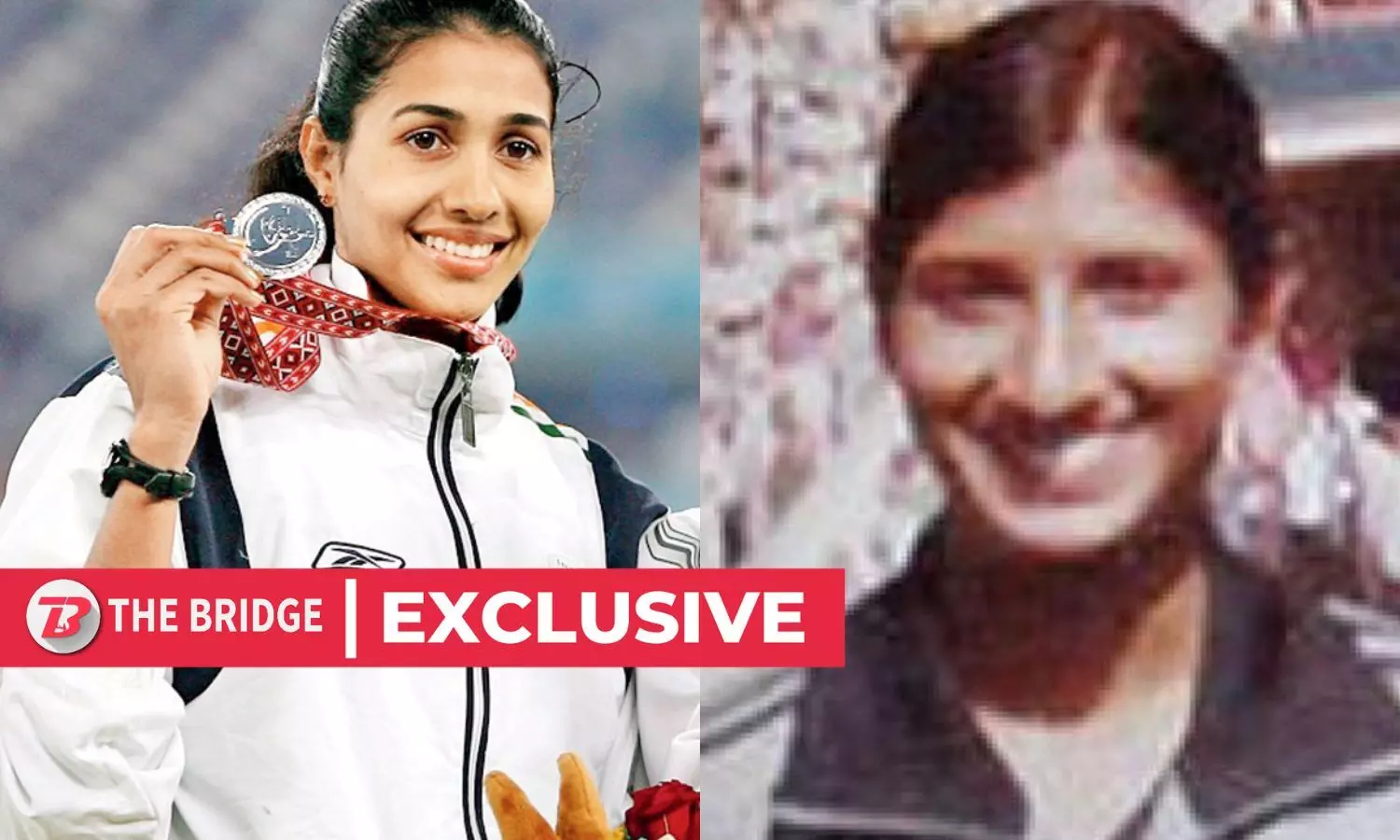Athletics
Running out of time: Mercy Kuttan and Anju Bobby George lament the decline of Kerala Athletics
The Federation Cup 2025 reflected the decline of Kerala Athletics.

Anju Bobby George and Mercy Kuttan (right) feel that the situation in Kerala has spiraled out of control. (Photo credit: Wikipedia)
Kochi: The Federation Cup 2025 could have been Kerala’s platform for athletics redemption. Instead, it turned into a eulogy for a legacy slipping through fingers like dry sand.
The championships, hosted on Kerala’s home turf, felt hollow, not just in medals, but in spirit. The stands were empty. The sun blazed down relentlessly on athletes competing under a cloudless sky.
There were no floodlights. No shade. No buzz. And no belief.
"It’s heartbreaking," says Mercy Kuttan, legendary Olympian and the first Indian woman long jumper to cross six metres, to The Bridge. "We had to wait till Day 2 for a bronze. That says it all."
Once the breeding ground of champions—Mercy, P.T. Usha, Anju Bobby George—Kerala's athletics circuit now finds itself gasping for air.
The stories of glory are now confined to history books and fading newspaper clippings. The tracks where dreams once were once nurtured now struggle to breed hope.
In what was once a proud fortress of Indian athletics, there’s now a silence that echoes louder than cheers ever could.
The price of neglect
For Anju Bobby George, the Federation Cup is a mirror held up to the system, reflecting how far Kerala has strayed from its roots.
"There’s a slight change, our athletes did well," she says, "but I think we are going backwards. The grounds where we used to run and play are missing. Now there are no paddy fields, no open spaces. Even if you’re in a city, there are just one or two stadiums. So where will the kids run and play?"
In a nation where concrete structures are synonymous with progress and development, something fundamental has been torn down—access to space, to play, to freedom.
Anju points out how schools today don’t prioritize sport. The culture of running barefoot on grass, of creating memories on fields, is now simply non existent.
"That’s why kids go behind drugs and other unhealthy habits," she says. "Because they have nothing else to hold on to."
The rot runs deeper than infrastructure.
Even Kerala’s once-renowned sports hostels are shadows of what they used to be. "No proper coaches, no proper equipment, no proper facilities. It’s like sport is no longer a priority for the government."
And for children trying to hold onto Olympic dreams, this neglect isn’t just demoralizing—it’s dehumanizing.
A system abandoned
"Just because we have many tracks doesn’t mean the system is working," Mercy says with quiet frustration. "Some neighbouring states like Tamil Nadu have foreign coaches. Even in Kerala, we give grace marks to students participating in sports—many states don’t. But that’s still not enough."
She wonders aloud: "Why are people hesitant to let their children take up athletics? Everyone wants money, but the commitment is missing."
It’s a heavy truth. Mercy competed at the Olympics after giving birth to her son. She won an Asian Games medal after her marriage.
She trained and fought through hunger, exhaustion, and a lack of resources simply because she loved the sport.
"Back in our days, we had to go hungry sometimes, we didn’t have proper food, proper shoes. But we kept going," she remembers. "Now, even with better facilities, the fire is missing."
In contrast, today’s athletes are quick to retire once they land a job. Mercy points out how both she and Usha secured jobs as teenagers but continued pushing their limits long after.
"Where is that hunger now?" she asks.
Children protesting for food
What’s perhaps most damning is how some of Kerala’s young athletes have had to protest—for food.
Yes, protest.
"In our sports hostels, kids are on the roads asking for basic meals and beds. It’s shameful," says Mercy.
These are not isolated events. They are symptoms of a broken pipeline.
While the central government has made strides in improving athletics infrastructure in cities like Trivandrum, Mercy points out that the on-ground realities in sports hostels remain dire.
Meals are inconsistent. Recovery support is absent. Coaches are overworked and undertrained.
"The system isn’t just broken. It’s been abandoned," she says.
An era fading
The Federation Cup mirrored Kerala’s disengagement.
Despite free entry, the bleachers stood mostly empty. There were no lights, forcing daytime events in scorching heat.
There was no buzz. No crowd. No Kerala spirit.
"In our days, Kerala dominated every event—track, field, jumps, throws. Now we hesitate to participate. That fear is new," Mercy sighs.
The heartbreak is not just in the absence of medals. It’s in the absence of belief. Of effort. Of love for the sport.
Today’s athletes chase stability, not legacy. When the system stops giving, the athletes stop dreaming. It's a vicious cycle.
Anju puts it best: "One or two people making statements won’t change anything. The government needs to sit together and act. Not tomorrow. Now."
There’s still time. There’s still hope. But that window is narrowing.
Kerala can reclaim its throne—not by waiting for miracles, but by rebuilding the roots. By feeding hungry athletes. By giving coaches the tools they need. By turning empty stadiums into theatres of ambition again.
The legacy hasn’t completely vanished. And the tracks are still there. They are just waiting for someone to pick up the baton. And run.
